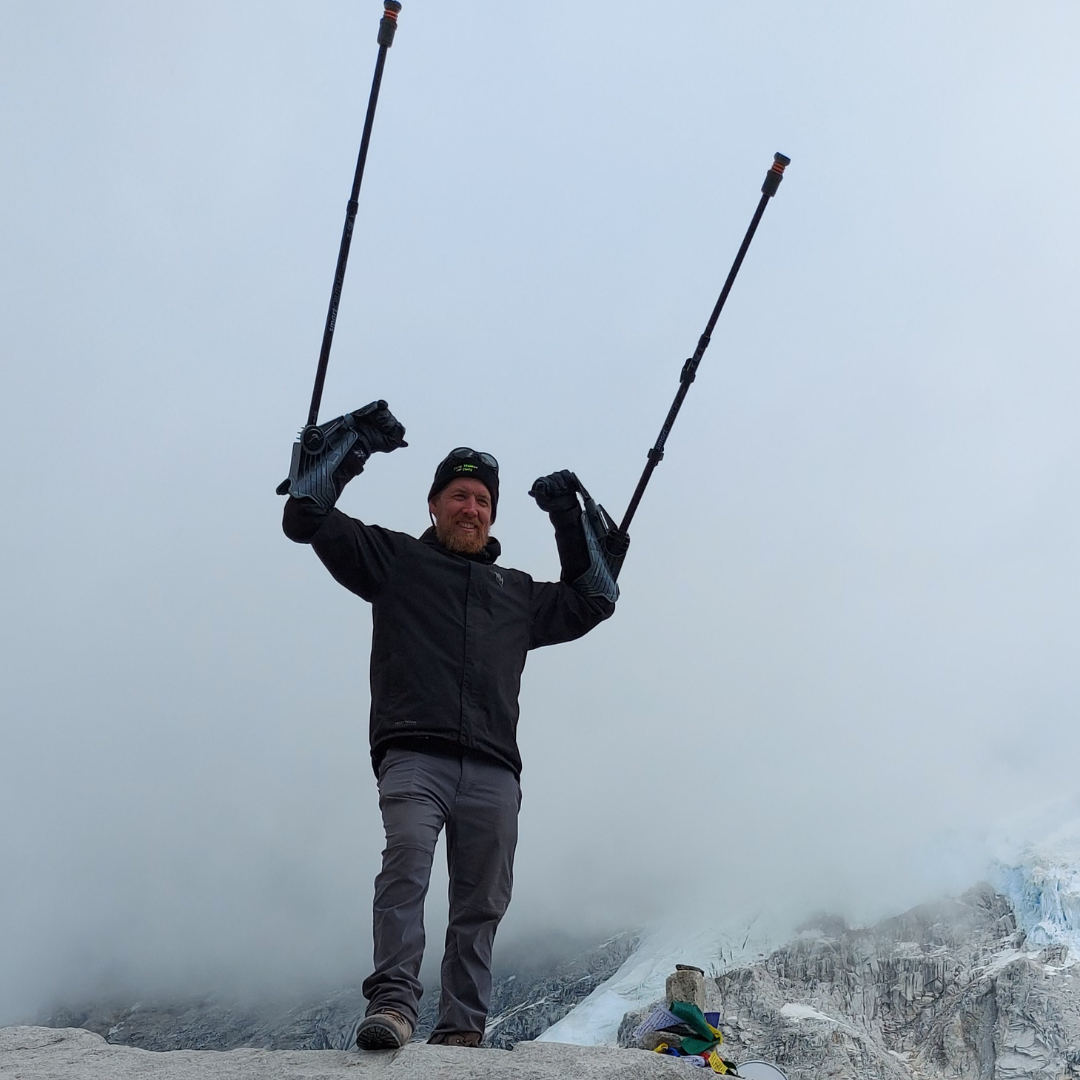Your basket is currently empty!

Adapting Your Goals: How to Stay Flexible and Keep Moving Forward
When I first set my life goals, they looked a lot like anyone else’s: career success, fitness milestones, adventure, and freedom.
Then in 2014 everything changed. I woke up one morning paralysed from the waist down. No warning. No plan. No control. Just an entirely new reality. In that moment, the goals I once held close, climbing mountains, running marathons, even walking unaided, suddenly felt out of reach.
But here’s what I’ve learned since: when life changes, your goals can change too. That’s not failure. That’s adaptability, the foundation of resilience and personal growth.
The Moment Everything Stops
When I was first diagnosed with Complex Regional Pain Syndrome (CRPS), I went through what I call the pause. Everything in life just stopped.
You’re stuck in a body you don’t recognise, in a world that suddenly feels smaller. I had to face one brutal truth: the goals I had before paralysis no longer fit the version of me that existed after.
That realisation was painful, but it was also the first step in adapting. Because goals are meant to serve you, not the other way around.
Learning to adapt your goals for resilience and personal growth starts right there, when you stop trying to force your old plans to fit a new reality.
If you want to understand more about CRPS and how it affects people, you can read more from the NHS overview of Complex Regional Pain Syndrome. (External link)
The Power of Flexibility
When I started using a wheelchair, I remember sitting there thinking: “Okay, if I can’t climb a mountain, what can I do?”
That single question changed everything. Flexibility became my greatest strength. I couldn’t stand, but I could still move forward differently. The goal wasn’t to walk again. The goal was to live fully, purposefully, and without limits.
That’s how I found wheelchair rugby, adaptive sports, and eventually, new mountains to climb.
Those goals didn’t feel smaller, they felt right. Because progress isn’t about the size of the goal, it’s about the direction you’re moving in.
And when you build that flexibility, you start developing true resilience and personal growth.
If you’re interested in how I channel that mindset into leadership and inclusion, take a look at my work in Inclusion Consultancy.
Adjusting the Map, Not the Destination
When life forces you to adapt, the key isn’t to abandon your ambition. It’s to adjust your route.
Think of it like navigating a mountain trail. The weather changes. A path closes. You reroute. But you still move toward the summit, even if it looks different than you imagined.
That’s what I did after paralysis. My summit shifted from physical endurance to mental resilience. From climbing literal mountains to building a career focused on inclusion, motivation, and helping others overcome adversity.
Every change in direction opened a new door, one I never would have seen if I’d refused to adapt.
When you learn to adapt your goals for resilience and personal growth, you stop fearing change and start using it as fuel for progress.
You can read more about this mindset in my related article: Building Resilience and Protecting Mental Wellbeing
Lessons from the Journey
Here’s what flexibility has taught me about resilience and goal setting:
- Redefine success. Sometimes success isn’t the goal you reach, but the person you become trying to reach it.
- Stay curious. When one path closes, ask, “What else is possible?” Curiosity creates momentum.
- Embrace uncertainty. Flexibility thrives when you stop fearing the unknown and start working with it.
- Be kind to yourself. Adapting doesn’t mean giving up; it means giving yourself permission to evolve.
These are the principles that turn challenge into personal growth and setbacks into opportunity.
Keep Moving Forward
Today I still set goals, but I do it differently. I set them with room to breathe. I allow life to shape them as I grow.
Because the goal isn’t to control the journey, it’s to keep moving forward no matter how the terrain changes.
If you’re in a season of change, remember: it’s okay to rewrite your goals. It’s okay to take a different route. What matters is that you keep showing up, keep adapting, and keep getting back up.
Because adapting your goals for resilience and personal growth isn’t just about surviving change, it’s about thriving because of it.

